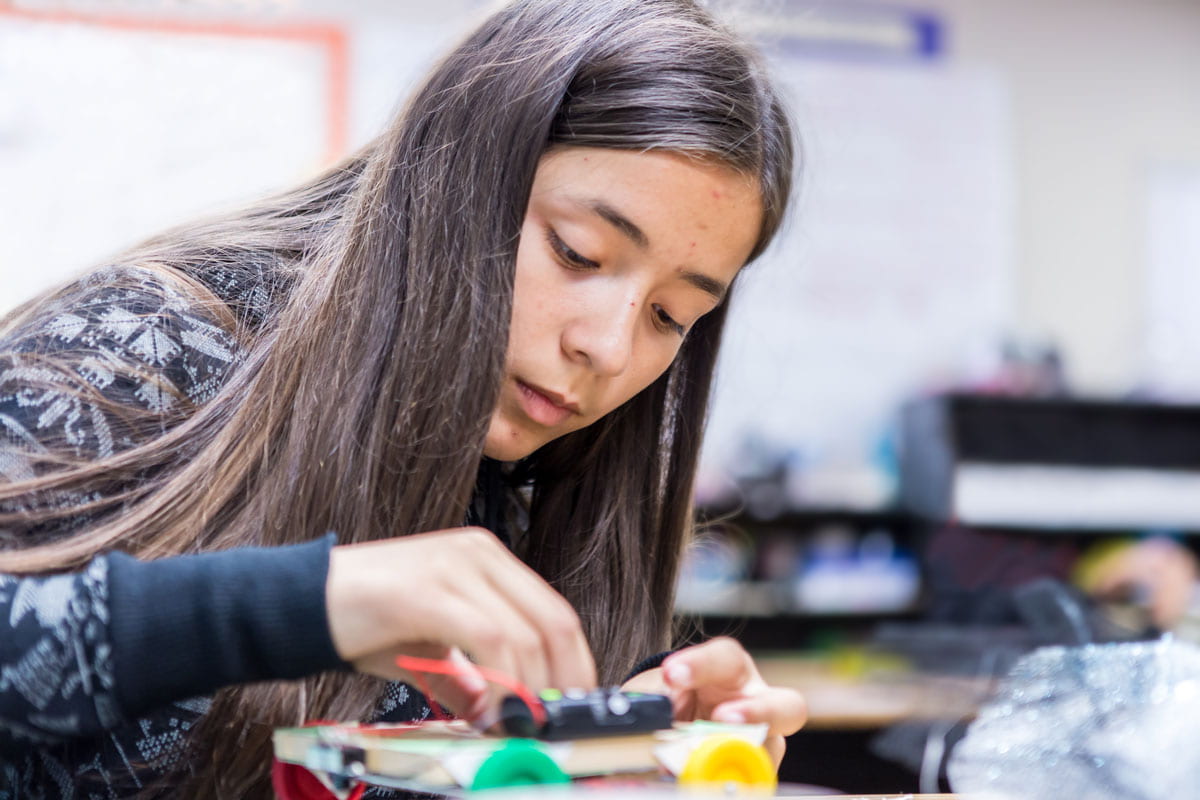San José, Calif.— San José State University’s Center for Community Learning and Leadership (CCLL) is pleased to announce the launch of the Civic Action Fellowship—a partnership between the California Volunteers within the Office of the Governor, AmeriCorps and a coalition of public and private universities—designed to help students pay for college while addressing regional challenges.
This unique collaboration between federal and state funds will allow 44 San José State undergraduate and graduate students from diverse disciplines to become AmeriCorps Civic Action Fellows and engage in virtual service during a time of great crisis triggered by the COVID-19 global pandemic. CCLL received $75,000 for planning and $480,868 ($136,106, federal funds and $344,762, state funds) for implementation as part of the grants.
The goal of the fellowship is to ensure a new cohort of California citizens committed to addressing local and state challenges, public concerns and a life of public engagement. The students who dedicate time to public service will receive financial support to obtain a college degree designed to position them for success in career and life.
“San José State students will meet some of the highest needs in our country during this time, first, by providing STEM education to underserved youths in surrounding neighborhoods. And second, by contributing to health promotion around COVID-19 through high-impact social media campaigns,” said CCLL Director and SJSU Professor of Psychology Elena Klaw.
The Civic Action Fellows will primarily work with local after-school programs to provide computer programming enrichment for underserved third- and sixth-grade youths. In addition, Civic Action Fellows will participate in the city of San José and Santa Clara County initiatives. For their efforts, the fellows will receive a monthly living allowance and an education award upon completion of the program.
“The Civic Action Fellowship enabled our center to expand upon our Cyber Spartans program. We now have the capacity to increase our partnerships, reach more youths and expand the content the youths are taught from only cybersecurity to civic engagement and health promotion,” said CCLL Assistant Director Andrea Tully.
Since the once completely in-person program is now entirely virtual, Tully said, “Our fellows are learning how to teach computer programming in unplugged ways through interactive kits that have puzzles and other games. They’re learning how to provide social-emotional support virtually to youths who struggled with online learning when the stay at home orders were first issued in spring.”
Joshua Lawson, ’23 Computer Science, who worked earlier on the Cyber Spartans Program, said the Civic Action Fellowship program offered him the opportunity to design a lot of the curriculum being used. “I was actually in charge of a lot of the design of the curriculum and had written a lot of programs and units of work that were designed to be either in person or in small groups with mentors,” said Lawson.
Due to COVID-19, the team had to dramatically change the curriculum over the last couple of months to adapt to the online environment. Lawson enjoyed the transition process as it allowed him to build a critically thought out creative project. Now, the virtual program model includes time to interact virtually with San José State fellows, as well as kits that students can work on at home.
Mercedes Mansfield, ’22 MS Occupational Therapy, who is working with the CCLL for the first time, said, “the program is important, as it will help me gain experience in hands-on work with members in underserved communities, as well as help me develop leadership skills.” Mansfield and Lawson both agree that the CCLL weekly seminars have helped to broaden their knowledge on societal issues and what they can do to create a larger change in the communities they serve.
“Our model at the Center for Community Learning and Leadership has always been innovative in that although there are many organizations on campus that provide service, our emphasis is long-standing mutually beneficial relationships that address ongoing community needs,” said Klaw.
CCLL works closely with Campbell Unified School District’s Expanded Learning Program, as well as its long-standing partner, Third Street Community Center, located very close to the SJSU campus.
“The pandemic caused unprecedented challenges to our program launch, as it has for our community partners and for the families of the youths our fellows serve. They are learning patience and resilience that I know will serve them well in their future careers,” Tully added.

